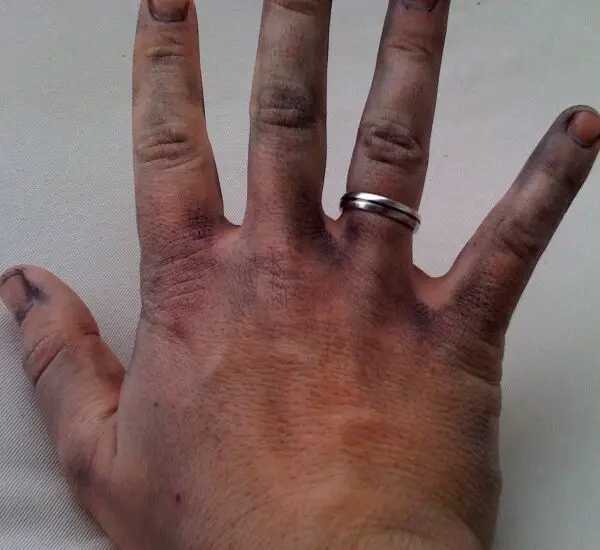Discoloration of skin due to eczema can be unsettling and interfere with your quality of life. This guide will offer you a thorough breakdown of what causes the discoloration, how to treat it, and preventive measures to take for healthier skin.

Does Eczema Cause Discoloration of the Skin?
Eczema, particularly atopic dermatitis, is well-known for its symptoms of itchiness, redness, and inflammation. However, what many people may not know is that it can also lead to skin discoloration. The process behind this is called “post-inflammatory hyperpigmentation” or PIH.
When your skin is inflamed due to an eczema flare-up, the body’s natural response is to repair the affected skin tissue. In doing so, your skin cells may produce an excess of a pigment called melanin. Melanin is responsible for the color of your skin, hair, and eyes. This excessive melanin production can make the affected skin areas darker than the surrounding skin.
According to the American Academy of Dermatology Association, 1 in 10 people will experience atopic dermatitis in their lifetime. Most of these individuals with eczema experience some form of skin discoloration. This statistic indicates that if you are struggling with eczema, you are not alone in experiencing skin discoloration.
How to Treat Discoloration of Skin Due to Eczema
Treating discoloration of skin due to eczema is usually a multi-step approach. It’s essential to consult a dermatologist for a diagnosis tailored to your specific condition. This section breaks down the standard treatment methods.
Consult a Dermatologist: A dermatologist will diagnose your skin condition and recommend a course of action. They may conduct tests or request detailed medical history to determine the best treatment for you.
Topical Treatments: Your dermatologist may prescribe topical creams that contain active ingredients such as hydroquinone or corticosteroids. Hydroquinone helps to lighten skin by inhibiting the enzyme responsible for melanin production. Corticosteroids reduce inflammation and can consequently reduce PIH. However, long-term use can have side effects, which the National Institutes of Health cautions against.
Oral Medications: Antihistamines may be prescribed to reduce itching, which prevents you from scratching and worsening the discoloration. These medications block the release of histamine, a compound that your body produces during allergic reactions.
Sun Protection: UV rays from the sun can exacerbate discoloration. Sunscreens with a high SPF can protect the skin from further discoloration. Wearing protective clothing and avoiding excessive sun exposure are also recommended.
Check out these other related articles…
White Patches on Skin After Eczema: A Complete Guide
Bumps on Skin From Eczema: A Comprehensive 411 Guide
Lines on Skin from Eczema: Comprehensive 411 Guide
Red Skin After Eczema: Your Complete Treatment Guide
Can Skin Recover From Eczema: The Ultimate Guide to Healing
Skin Peeling After Eczema Flare Up: Healing or Concern?
Does Skin Discoloration from Eczema Go Away? Detailed Answer
How to Prevent Discoloration of Skin Due to Eczema
Prevention is better than cure. Even after treating discoloration of skin due to eczema, it can recur if you don’t take preventive measures. According to the Mayo Clinic, the following are ways to minimize the risk:
Moisturize Regularly: Keeping your skin hydrated can prevent dryness, which is a common trigger for eczema flare-ups. Use hypoallergenic, fragrance-free moisturizers to keep your skin moist. A good example is this Physiogel Daily Moisture Therapy Face Cream listed on Amazon.
Avoid Triggers: Substances such as certain soaps, detergents, and materials like wool can worsen eczema. Identifying and avoiding these triggers can help in preventing flare-ups and, by extension, skin discoloration.
Limit Bath Time: Long, hot baths can strip your skin of essential oils, leading to dryness and potential flare-ups. Stick to short, lukewarm baths and showers.
Choose Soft Fabrics: Wearing soft, breathable fabrics like cotton can prevent irritation. Rough materials can exacerbate symptoms and trigger an eczema flare-up, leading to potential discoloration.


